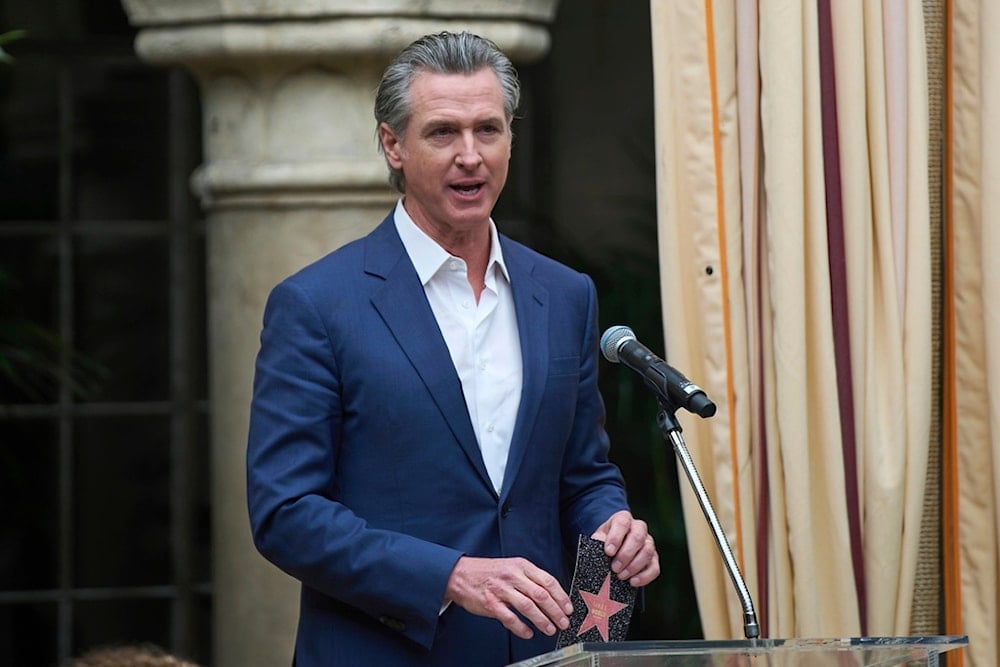California sues Trump administration over tariff authority
The core of the lawsuit argues that the IEEPA, originally enacted in 1977 to address genuine national security emergencies, was not intended to authorize the imposition of tariffs on international trade.
-

California Gov. Gavin Newsom announces "Vogue World: Hollywood," a fashion event scheduled for October 2025, at a news conference at Chateau Marmont in Los Angeles, March 26, 2025 (AP)
California Governor Gavin Newsom is preparing to launch a legal challenge against the federal government, contesting the legitimacy of President Donald Trump's tariff policies. The forthcoming lawsuit, expected to be filed in the US District Court for the Northern District of California, targets Trump's application of the International Emergency Economic Powers Act (IEEPA) to justify sweeping import duties, some reaching as high as 145 percent.
The core of the lawsuit argues that the IEEPA, originally enacted in 1977 to address genuine national security emergencies, was not intended to authorize the imposition of tariffs on international trade. Legal scholars and state officials maintain that invoking this law for such economic measures constitutes a gross overreach of executive authority, particularly in light of the "major questions" doctrine recently reinforced by the US Supreme Court. This doctrine holds that actions with significant economic consequences must have clear congressional authorization.
"As one of the most trade-reliant states in the US, California is disproportionately affected by this kind of policy instability," a spokesperson from Newsom's office noted. California, which would rank as the world's fifth-largest economy if independent, processes enormous volumes of goods through its ports and is deeply embedded in global commerce. Any sustained disruption to trade flows, particularly with major partners such as China, Mexico, and Canada, could cost the state billions in lost revenue.
"President Trump's unlawful tariffs are wreaking chaos on California families, businesses, and our economy — driving up prices and threatening jobs," Newsom said in a statement. "We're standing up for American families who can't afford to let the chaos continue."
Executive Overreach
The legal action follows a pattern of resistance from California, which has filed over a dozen lawsuits against Trump-era federal policies. However, this case is especially significant as it marks the first time Governor Newsom himself is taking a central role in a federal challenge of this kind. It also comes after a period of relative cooperation between the governor and the former president, particularly in the wake of the Los Angeles wildfires in January, during which Newsom publicly welcomed Trump's support.
California's Attorney General Rob Bonta is expected to argue that Trump's tariffs not only lack proper legal grounding but have also disrupted supply chains, inflated consumer prices, and jeopardized California's economic stability. The state's economy, heavily reliant on global trade and tourism, is described by analysts as being "hyper-exposed" to protectionist measures.
In addition to challenging the policy itself, California's suit implicitly questions broader uses of executive power in the realm of economic regulation. If successful, the lawsuit could help clarify the limits of presidential authority under emergency powers statutes, setting a precedent that might constrain future administrations from pursuing similar unilateral trade actions.

 3 Min Read
3 Min Read








